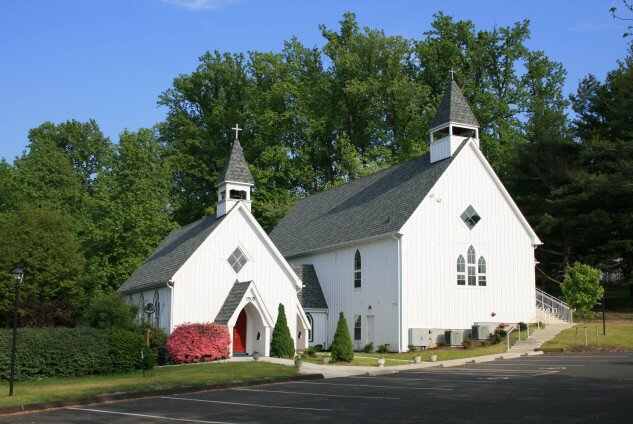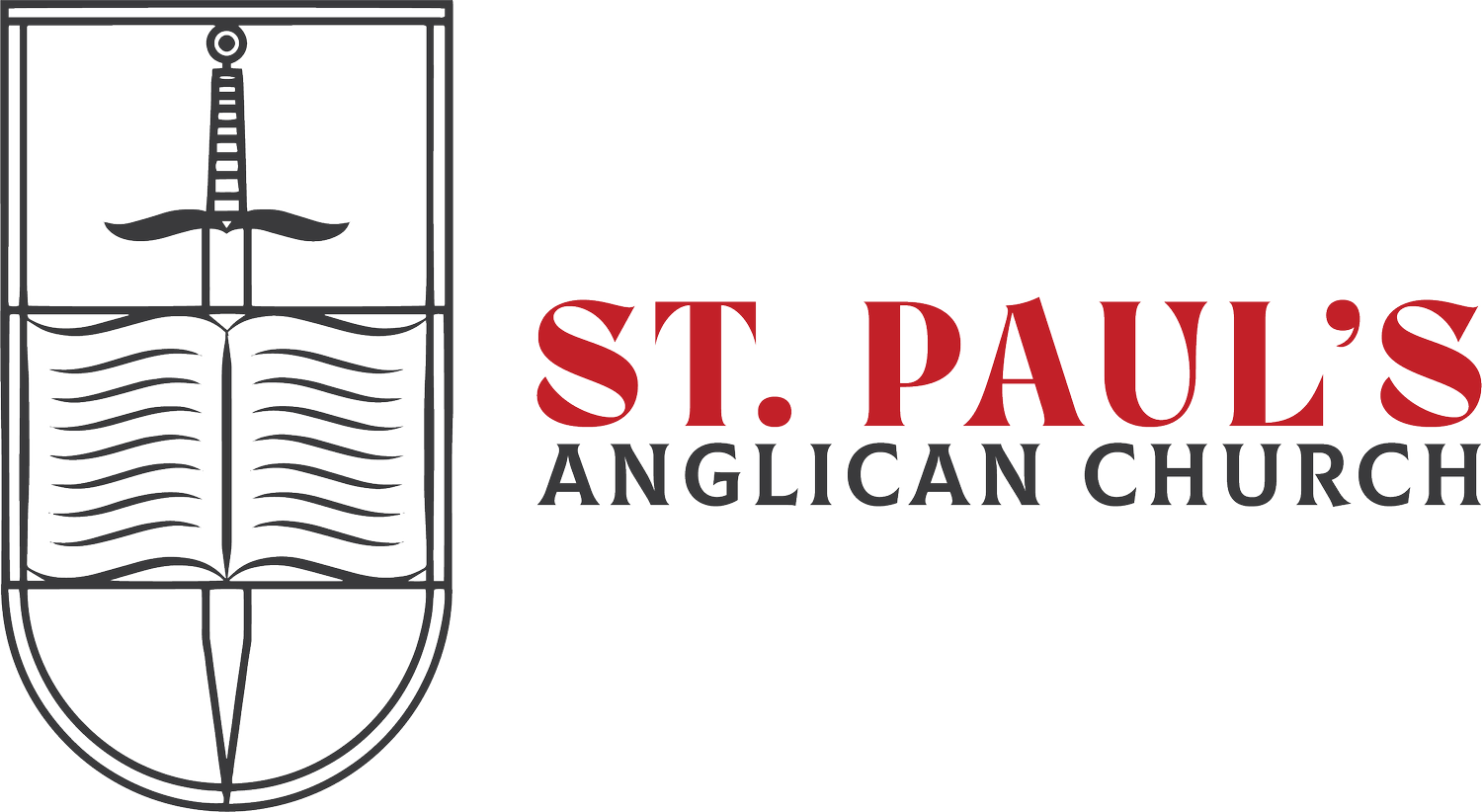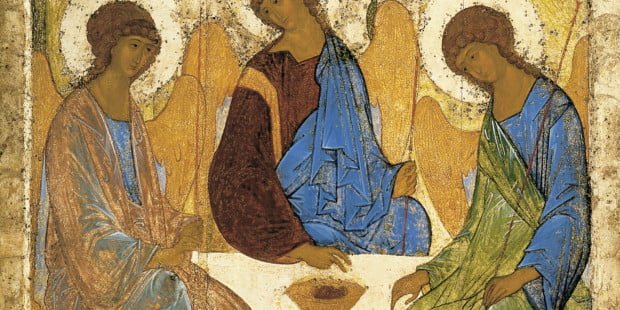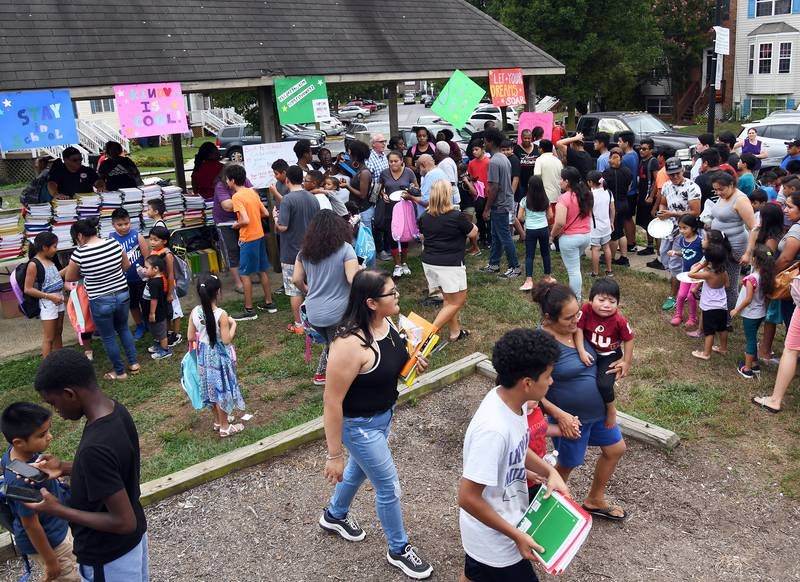
NEWS
Reflection: On Blessing Pets and the Feast of St. Francis
By Fr. Wesley Walker
Christians around the world celebrated the Feast of St. Francis of Assisi (c. 1181-1226), the patron saint of animals, on Tuesday, October 4. In one legend made up after his death, he stopped a train of brother monks that he was traveling with to preach to birds. His preaching was so beautiful that the birds began to bow their heads towards heaven and sing beautifully to the glory of God. What St. Francis understood is that all of God’s creation is a beautiful gift and animals, as a part of that creation, are special gifts to us. We intuitively understand this; it’s why so many of us invite pets into our families. From a Christian perspective, our relationship with animals is especially important because it can be an important avenue that teaches us to care for creation.
Christians recognize that personhood entails context. All of us are born in geographical areas, into families, and already existing social structures and arrangements. From the moment of our conception, there being human involves interconnectedness. Collectively, we have come to realize the interconnectedness of all things over the past few years with the pandemic: that a pathogen in one part of the world can affect not only the health of people on the other side of the world but also shut down travel, economies, and so much else. If everything is connected, it means that we are contingent beings. I exist because I have parents. But why do my parents exist? We could point to our familial genealogy which ultimately connects to the evolutionary development of humans from earlier forms of life. Where does this great chain of being originate? For Christians, the answer is God.
That we live in a created world in particular circumstances brings a certain dignity to those contexts. Whatever is is good insofar as its existence is a participation in the God who is, “in whom we live and move and have our being.” (Exod 3:14; Acts 17:28; NRSV). This means that the world, the sum of all the various contexts that exist, was not only created by God at a certain point; it continues to be sustained by him as he holds all things together. If it is true that creation is a gift from God that is sustained by him, then we must recognize it for the gift it is by respecting it, treating it with dignity, and offering thanksgiving to God for it.
This brings us to our furry friends. They are included in this beautiful, divinely-provided gift of creation. According to the Song of Three Jews, the animals, in their own way, join us in praising our Creator: “Bless the Lord, you whales and all that swim in the waters; sing praise to him and highly exalt him forever. Bless the Lord, all birds of the air; sing praise to him and highly exalt him forever. Bless the Lord, all wild animals and cattle; sing praise to him and highly exalt him forever. Bless the Lord, all people on earth; sing praise to him and highly exalt him forever.” This sublime chorus of adoration offered by a diverse collection of species is interconnected: we are not the same without our animals and they are not the same without us. We are not the same without our animals because they teach us what it means to care for creation. Walking our pets, feeding them, and paying for their vet bills are all acts of sacrifice for the other. It’s simultaneously true that our animals would not be the same without us. The great Christian thinker C.S. Lewis once said, “The higher animals are in a sense drawn into Man when he loves them and makes them much more nearly human than they would otherwise be.” In our animals, we see two things at once: we see creation as it is and creation for what it can be. The Christian should see the world charged with the grandeur of God and want aid in its elevation, just like St. Francis did when he allegedly preached to the birds!
We are all placed in a context. Whatever our context is, we know God is the ultimate source of that context because he is the source of all created things. This provides an impetus for us to care about creation. One way we do that is to have a Blessing of the Pets event where people may bring their animals to receive a blessing. Blessings are a way that the Church sets something or someone apart for God and calls God’s favor and grace on them. Blessing of the Pets provides us a wonderful opportunity to care for our animals, to recognize that they are gifts of God, and thank him for them.
Reflection: On Mission
By Fr. Wesley Walker
In Christian contexts, the word “mission” often makes us think of going to other parts of the world on short-term missions trips or missionary work in remote villages. These mental images are in no way wrong, but they are incomplete. When we use the term “mission” in terms of the Church, we’re talking about Her vocation: the identity of the Church, the purpose of the Church, and what activities fall under that umbrella. This week, +Bp. Stephen Scarlett, the rector of St. Matthews in Newport Beach, California and the Bishop of the Diocese of the Holy Trinity in the Anglican Catholic Church, organized a conference and retreat on the topic of mission in partnership with our own Diocese of the Eastern United States of the Anglican Province of America at the Montserrat Jesuit Retreat House in Dallas, Texas. Must was said at the conference by many exemplary ministers in our G3 communion of churches who are on the cutting edge of living out the Gospel in the 21st century. I hope to share more of that wisdom in the future as my reflections foment. The main thing that stuck out to me was that there are really two ways of going about the Church’s mission: a consumerist approach and an organic approach.
The consumerist approach reduces the mission of a parish to franchising. This vision of mission casts the parish’s identity purely in the external things—aesthetics, programs, etc. These things do matter, of course, but they are means to the end, not the end itself. The goal of outreach from the consumerist perspective is simply marketing to perpetuate the brand. This poses a problem. In the words of philosopher Marshall McLuhan, “The medium is the message.” If we market the parish primarily through advertising, if we offer programs and liturgies as a means of fulfilling consumeristic desires, then the parish is a product. Ultimately, this is a view of Church that is inherently compartmentalized; it sees the Church as one product among other products, which also means it can be discarded when it ceases to “do it” for us. +Bp. Scarlett exhorted us to cast off this approach for the good of the Church.
There is a better way. The alternative to marketing is an organic, missional approach. This starts with the idea of the Church as the sacramental Body of Christ which centers its life around koinonia, Apostolic teaching, the Eucharist, and corporate prayer (Acts 2:42-47). The outworking of this approach is to see every member of the Church as a missionary and the Church’s primary vocation to be shepherding members along the path of holiness and converting sinners with the Gospel. The goal is never attraction via gimmick, but a relational invitation into the life of the Church. This approach is arduous because it requires authenticity and actual discipleship. If this is how we think about mission, we cannot be sideline spectators, but active participants who recognize discipleship as their primary vocation.
For the Church to be healthy, her members must take up the posture of missionaries. This begins with a love for Jesus Christ. Whatever else comes after that, it must be shaped and catalyzed by an active relationship with Our Lord. That love, however, must be expressed in discipleship, a disciplined pursuit of God that organizes itself around the love of God. This allows us to go “further up and further in” to our relationship with Jesus through the spiritually formed life that is centered around Holy Communion, the Daily Office, and a private, structured prayer life. This life that is based in communion with God and his Church will overflow and express itself in a desire to share the faith with others. This happens not through nifty pitches, charismatic presentation, and gregarious personality but through a real openness to others and authentic hospitality that sees others not as consumers to be entertained, or even potential new parishioners but human beings in need of the Gospel. If we have love for God, spiritual formation, and evangelistic zeal, then we can live as missionaries to a culture that desperately needs the Gospel.
This conference on mission was such an encouragement. I should say that there were members of all our G3 Communion: the Anglican Province of America, Anglican Catholic Church (including the Diocese of the Holy Cross), and the Anglican Church in America were all present. As the Psalmist says (133:1), “How good and how pleasant it is for brethren to dwell together in unity! ” Even more, the conference offered a wonderful clarification from bishops and priests who have been successful at living out this organic approach to mission. In the 21st century, the Church as a whole is at a crossroads; it must choose this day whom it will serve. We can choose the marketing approach—an approach that has been a failure in the mid-to-late 20th century—and continue to reduce the identity of the Church to a branding consumeristic exercise. On the other hand, we can adopt an organic missional approach that begins with adoring our Lord and Savior Jesus Christ and invites others into that mode of being. If we choose the latter, we choose the “narrow way” (Matt 7:13-14), but this is the right way. Mission is always and ultimately about fidelity.
Fall Retreat: The Rule - The Role of Mass, the Daily Office, and Private Prayer in the Life of a Disciple
Join us for our Fall Retreat The Rule: The Role of Mass, the Daily Office, and Private Prayer in the Life of a Disciple on October 29th . We will discuss how to structure our lives so that we can become serious and disciplined disciples of Our Lord and Savior, Jesus Christ. The schedule will be as follows:
8:30a: Morning Prayer and Refreshments
9:00a: Session 1: What is a Rule?
10a: Session 2: The Threefold Cord: Mass, Office, and Prayer
11a: Session 3: Spiritual Direction: Implementing the Rule
Blessing of the Animals: Saturday, October 8, 10a-2p
St. Francis of Assisi (1181-1226) was a saint who loved animals. According to one legend, he stopped by the side of the road while on a journey in order to preach the Gospel to birds! As a result of his care for creation, he is the patron saint of animals.
In honor of St. Francis’ Feast Day (October 4), we will be blessing animals in the parking lot of St. Paul’s on Saturday, October 8, 2022 from 10a-2p! Our address is 1505 Crownsville Rd., Crownsville, MD 21032.
You can bring any kind of animal—dogs, cats, birds, goldfish, or whatever else!—and we will bless it. We will also have treats for dogs. You’re free to walk your pets around our beautiful grounds, enjoy our beautiful prayer garden, and pray in the chapel. Come join us as we celebrate God’s beautiful creation!
Reflections: On Returning to the APA
Today’s reflection is brought to us by Dcn. David Hodil.
For those of you who may not know my background, I came to Anglicanism in an APA parish in Florida and then moved to an ACA cathedral not far away. When they left to join the Roman Catholic Ordinariate, I went with them and was ordained a Deacon. Because of my background, the question has been asked: why did Deacon David leave the APA and then come back?
The short answer is that I was seeking greater unity within Christianity, and at the time I believed that it could be found under the big tent of the Roman Catholic Church. And to be perfectly honest, the level of commitment to the church is one thing for a lay person and quite a bit different for clergy. I never cared for the Roman claims of universal jurisdiction and papal infallibility, but as a lay person, they really didn’t bother me that much. And given a certain number of intellectual gymnastics, some Roman Catholic claims can appear reasonable. But through a series of situations, I discovered that things were not as they seemed.
Unable to continue to hold contradictions together in my mind, I was having a crisis of faith of a magnitude previously unknown to me. I read an article by a devout Roman Catholic thinker and writer who had been brought to the point of agnosticism over the current state of the Church. I was in fear of the sin of despair. Not knowing what to do I reached out to an old friend, +Bp. Chad. Years before, Fr. Chad led me into catholic faith and practice and mentored me. It was Christmas time and my soul was in bad shape. We corresponded and he invited me back into the fold of the APA and told me about St. Paul’s. We met in person a few weeks later and spoke of Rome and many things which helped me place a lot of issues in perspective. I prayed the Angelus with him on the way to lunch which was like a balm on my soul. Everything else you know. I came here the day after meeting with +Bp. Chad and met all you good people.
I know a lot of this is personal, but I think it is important that you know that your priests and deacons deal with doubts and inner conflicts just like everyone else. We are all sojourners together as we make our way to the Eternal Day. God bless and keep you.
-Deacon David.
Reflections: On Prayer
“The function of prayer is not to influence God, but rather to change the nature of the one who prays.” -Soren Kierkegaard
Prayer should be central to the Christian life. This is not a controversial statement; most people of faith would believe it. But what is prayer? Why do we do it? These are important questions because they have practical applications that directly impact the quality of our spiritual lives. In light of this upcoming week’s Collect and the fact that our Thursday Night Bible Study is getting ready to study the topic of prayer and so I thought it would be appropriate to briefly delve into this topic to help all of us better understand the nature of prayer and its purpose. I should also mention that on October 29, we will be doing a half-day retreat on the topic of prayer and the Christian life so mark your calendars now!
What is prayer? St. Thomas Aquinas defines prayer in two different ways: (1) “the elevation of the mind to God”; and (2) “Petition made to God for honest things.” These definitions are complementary: the first, more general definition recognizes prayer as a dialogical act in which we turn our attention to God while also attuning our ears to hear him; the second definition emphasizes the active part of prayer in which we make requests of God. We can find examples of both in Sacred Scripture. When St. Paul exhorts parishes under his oversight to “Pray without ceasing” (1 Thess 5:17), he is pointing us to the first definition: in all things, we should be mindful of God’s presence. However, we see numerous examples of petitionary prayer in Scripture as well: “Give us this day our daily bread” (Matt 6:11). The important part of this second definition is that it causes us to explicitly recognize our complete dependence on God. In fact, Jesus goes on to address this later in Matthew 6, “Therefore I say unto you, Take no though for your life, what ye shall eat, or what ye shall drink; nor yet for your body, what ye shall put on. Is not the life more than meat, and the body than raiment? Behold the fowls of the air: for they sow not, neither do they reap, nor gather into barns; yet your Heavenly Father feeders them. Are ye not much better than they?” Perhaps this is why prayer can be difficult for us sometimes: we don’t like acknowledging our total and complete dependence on God. Both of Aquinas’ definitions work together to paint a picture of the Christian life: one lived with our attention intentionally directed towards God as we cast ourselves on him, recognizing our finitude and weakness as creatures.
But this raises a problem: is prayer an attempt to “influence” God? I’m in agreement with Danish philosopher Soren Kierkegaard; that cannot be the reason we pray. God is not a creature who can be influenced one way or another. St. James reminds us that in him “is no variableness, neither shadow of turning” (1:17). Our prayers are not quarters that we insert into a cosmic vending machine god. But if this is true, is prayer a superfluous exercise in futility? Certainly not! We articulate the purpose of prayer every Sunday in the Lord’s Prayer: “thy kingdom come, thy will be done.” Kierkegaard makes explicit the undergirding principle, namely that purpose of prayer is “to change the nature of the one who prays.” There are two beautiful examples of prayer in the New Testament: Mary and Jesus. Mary’s prayer at the Annunciation was “be it unto me according to thy word” (Luke 1:38). In her response is the entire Christian life; whatever God calls us to, this is the perfect reply. The same prayer is found in the Passion of Our Lord when Jesus assents, “nevertheless not my will, but thine, be done” (Luke 22:42). Prayer is not about persuading or controlling God; that’s paganism. Prayer is about submitting ourselves to God which makes sense if we’re dependent on him.
As Anglicans, prayer is the center of our lives. The Mass is what makes prayer possible. The Daily Office—Morning and Evening Prayer—is the steady rhythm of the Church. “Private” prayer (there’s really no such thing as purely private prayer but I mean it to describe prayer done when one is physically alone) is a way we deepen our intimacy with God. By praying, we center ourselves around the fact that we are not self-sufficient and we embrace our dependence on God. It is true that prayer is a conversation. We can be honest with God and pray for the things that weigh on us. But the purpose of this conversation is ultimately to conform our wills to God’s will because he knows what’s best for us. As Mother Teresa once said, “Prayer is not asking. Prayer is putting oneself in the hands of God, at His disposition, and listening to His voice in the depth of our hearts.”
2022-2023 Friday Bible Study: Luke-Acts
This Fall and Spring, the Friday Bible Study will be going through The Gospel of St. Luke and The Acts of the Apostles!
Every Friday, we will have Morning Prayer from 9:30a-10a and then the study from 10a-11:30a.
We will be using Leon Morris’ Luke commentary and I. Howard Marhsall’s Acts commentary in the Tyndale New Testament Commentaries series.
This is our schedule:
Fall 2022: The Gospel According to St. Luke
September 23: Introduction to the Gospel According to St. Luke (Assigned: Luke 1:1-80)
September 30: Luke 1:1-80 (Assigned: Luke 2:1-4:13)
October 7: Luke 2:1-4:13 (Assigned: Luke 4:14-6:49)
October 14: Luke 4:14-6:49 (Assigned: Luke 7:1-8:56)
October 21: Luke 7:1-8:56 (Assigned: Luke 9:1-10:42)
October 28: Luke 9:1-10:42 (Assigned: Luke 11:1-12:59)
November 4: Luke 11:1-12:59 (Assigned: Luke 13:1-14:35)
November 11: Luke 13:1-14:35 (Assigned: Luke 15:1-17:10)
November 18: Luke 15:1-17:10 (Assigned: Luke 17:11-19:44)
December 2: Luke 17:11-19:44 (Assigned: 19:45-21:38)
December 9: Luke 19:45-21:38 (Assigned: Luke 22:1-24:53)
December 16: Luke 22:1-24:54
Spring 2023: The Acts of the Apostles
January 13: Introduction to The Acts of the Apostles (Assigned: Acts 1:1-2:47)
January 20: Acts 1:1-2:47 (Assigned: Acts 3:1-4:31)
January 27: Acts 3:1-4:31 (Assigned Acts 4:32-5:42)
February 3: Acts 4:32-5:42 (Assigned Acts 6:1-8:3)
February 10: Acts 6:1-8:3 (Assigned Acts 8:4-9:31)
February 17: Acts 8:4-9:31 (Assigned Acts 9:32-11:18)
February 24: Acts 9:32-11:18 (Assigned Acts 11:19-12:25)
March 3: Acts 11:19-12:25 (Assigned Acts 13:1-14:7)
March 10: Acts 13:1-14:7 (Assigned Acts 14:8-15:35)
March 17: Acts 14:8-15:35 (Assigned Acts 15:36-16:40)
March 24: Acts 15:36-16:40 (Assigned Acts 17:1-18:17)
March 31: Acts 17:1-18:17 (Assigned Acts 18:18-19:41)
April 14: Acts 18:18-19:41 (Assigned Acts 20:1-21:36)
April 21: Acts 20:1-21:36 (Assigned: Acts 21:37-24:27)
April 28: Acts 21:37-24:27 (Assigned: Acts 25:1-28:31)
May 5: Acts 25:1-28:31
Reflections: Double Polarity - Baptism and the Christian Life
One of the great debates in Christian theology is whether Christ’s righteousness is imputed or imparted to the Christian. The doctrine of imputation occurs within a legal framework: sinful humanity cannot meet the demand of God’s perfect righteousness; in becoming incarnate and dying on the cross, Jesus does what humans could not do by satisfying that demand. Imputation, then, is the “legal (or forensic) crediting of Jesus’s perfect righteousness to believers by faith for justification” (Brandon Crowe, “What is Imputation”). Many who emphasize this position often hold it over and against the idea of imparted, or infused, righteousness. According to those who emphasize imparted righteousness, they believe that God infuses righteousness into the soul by the Sacraments and participation in the divine life.
When these two views are absolutized, they risk turning into caricatures. Imputation by itself cannot account for sanctification, that we must become holy. Impartation can become legalistic and overly-obsessed with works. The tension between these two points of emphases leads to an important question: how do we understand the Christian life—a resting in God’s pronouncement of us based on an alien righteousness, or a cooperation with grace based on a process of becoming? Even more fundamentally, what does baptism do to us?
Anglican theologian L.S. Thornton (1884-1960) is helpful on this point. He is an underrated thinker among Anglicans. His book The Common Life in the Body of Christ is a tour-de-force through the Pauline corpus, even while its somewhat clumsy organization and digressive prose makes it a challenging read. In the book, he proposes a solution to the imputation/impartation dilemma called “double polarity:
“From one point of view the great transformation in the Christian life has already taken place once for all in baptism. We have been made partakers of Christ in the fullest sense…from another point of view the greatest transformation exists only in germ in each of us. Its fruition lies in the future, and we are summoned to seek that fruition” (60-61).
There is a dialectical tension between the “already” and the “not yet.” At one pole, the Christian has already been decisively incorporated into Christ via their Baptism. Thornton goes on to say, “The whole work of our salvation was accomplished in Christ’s death and resurrection. By Baptism we were made partakers in the fulness of this salvation.” But the “not-yet” pole reminds us that reception of the Sacrament is only the beginning of “a process which must be both gradual and prolonged” (64). The culmination of Baptism is yet to come.
For Thornton, this reality can be conveyed by the image of “grafting” which St. Paul discusses in Romans (4:25; 6:5; 9-11). People are grafted into the holy tree through Baptism which identifies them with the death of Christ. Grafting itself has two aspects: (1) the scion is attached to the rootstock; (2) the consequent integration where the two become one. Just as the scion becomes a part of the root, so Baptism attaches a person to the Church. yet, the new organism must grow together so as to solidify its union, just as the Christian must become increasingly like Christ, being seamlessly integrated into his Body. This is why the danger of apostasy is ever-lurking in the New Testament; apostasy is when the process of growing into Christ is terminated before its end point. As a seed is only good insofar as it reaches its end by growing to fruition, so Christians are good only insofar as they reach the their end, conformity to Christ.
Circling back to the question of imputation and impartation, then, it seems that both positions arrive at the truth (though perhaps we could say one more than the other). There is a sense in which the Christian is declared righteous in a way that does not match their present reality. Similarly, while Baptism remits all sin, original and actual, it does not once and for all conquer concupiscence. The newly baptized Christian still has a long journey ahead of them. The beginning and end points of the Christian life must correspond to one another; the cruciformity of Christ must characterize the individuals and communities which claim to follow him and comprise his Body. Another great Anglican theologian named E.L. Mascall summarizes this more succinctly by state, “since God is the Creator, he cannot impute without imparting” (Christ, the Christian, and the Church 82). God spoke creation into existence: when he said “Let there be light,” light burst forth into being. When God declares a person to be righteous, they really become so. The process whereby it occurs may seem arduous with many fits and starts. It may even seem like a discernible positive trajectory is lost as life’s path takes its twists and turns. Yet, as Paul writes, “he who began a good work in you will bring it to completion at the day of Jesus Christ” (Phil 1:6). To conclude, it is most appropriate to heed Thornton’s words summarizing his position:
“The death of Christ upon the Cross was the death of the old order to which the natural self of each of us belongs. But his resurrection was the beginning of the new order to which as Christians we belong. In baptism we were translated out of the old order and into the new. For us ‘the new’ has begun. Therefore ‘we shall be also’ united with ‘the likeness of his resurrection.’ Assimilation to the risen life has begun. The fruition of the process is assured. The end will be conformed to the beginning” (65).
Parish Picnic: August 21!
Annual Parish Potluck Picnic
Sandy Point State Park
August 21, 2022
Who: All church members, relatives, and friends.
When: Holy Communion Church Service begins at 10:30 am. Picnic follows at approximately 11:30
Where: Sandy Point State Park, 1100 East College Parkway, Annapolis, MD
How: Sign-up sheet is on the bulletin board outside the nursery. Include the number of people coming AND what you’re bringing to share (main dish, salad, veggies/fruit, chips, dessert, etc.)
Parking: Church will provide parking pass* to cover fee of $5 for EACH person in your car. Children in car seats are free. To get parking pass you must sign up by August 2. Passes will be available starting August 7.
Drinks: Each person is responsible for their own beverage. Church will supply water. Beer/wine is permitted but must stay within the pavilion.
St. Paul’s will supply the plastic ware, cups, plates, napkins, ice.
Feel free to bring beach chairs, bathing suits, beach towels and toys for the children
Bathrooms and beach are nearby.
Come and join the fun!
Raynaldo Brown's Back to School Event
Raynaldo Brown has set the date for his “Oxford Landing’s Back-to-School Supplies Giveaway” for Saturday, August 20 from 1-5 p.m. This has been a favorite Missions Outreach event for several years, and we are once again asking for donations to this effort. As in years past, both cash donations and school supply donations are welcome. If you choose to donate cash, please place your cash or check in the envelopes provided in the pews. In this way, the donations are kept separate for this event. Thank you in advance for your wonderful generosity to help less fortunate children to be ready for the new school year.



















